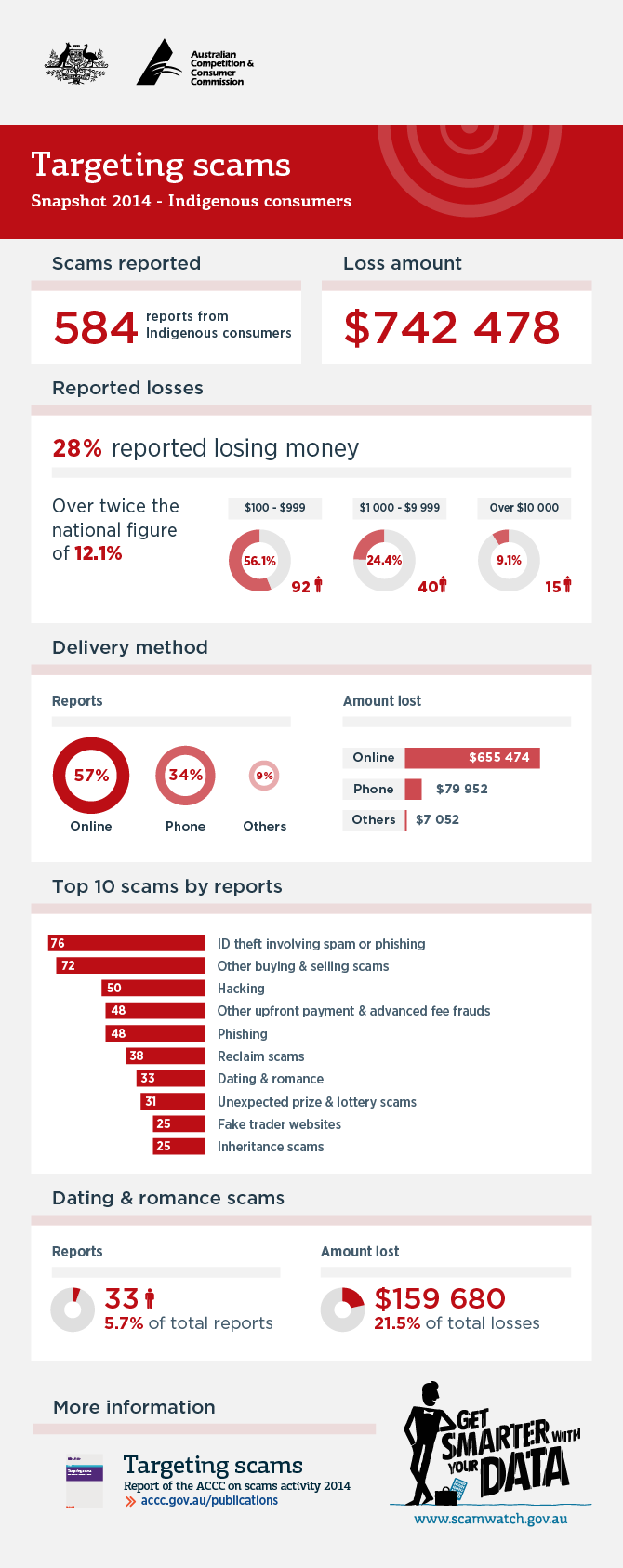This Fraud Week, the Australian Competition and Consumer Commission is urging Indigenous consumers to be wary of requests over the internet for personal information. The ACCC’s 2014 Targeting Scams Report revealed that Indigenous consumers lost over $740,000 to scammers last year.
“Sadly, almost one third of Indigenous Australians who came into contact with a scammer last year lost money. This is more than double the figure for non-Indigenous consumers,” ACCC NT Regional Director Derek Farrell said.
In fact, scams accounted for almost 90 per cent of complaints by Indigenous consumers to the ACCC in 2014.
“Internet scams caused the highest losses for Indigenous Australians, totalling $655,000, so we’re urging the community to be wary of all internet approaches asking for personal details or money,“ Mr Farrell said.
“Scammers today are not just after your money – your personal information is valuable too. In 2014, identity theft scams were the top reported scam for Indigenous consumers.”
“When scammers steal your details, they can use them for all sorts of crime such as making unauthorised purchases from your bank accounts, taking out loans or carrying out other illegal business under your name,” Mr Farrell warned.
Today we are launching a scams campaign on our ‘Your Rights Mob’ Facebook page to spread the message to Indigenous consumers about how to spot a scam and how they can protect themselves from scammers.
SCAMwatch tips
Keep your personal details secure - never just throw out bills or important documents that have your personal details on it like your address, bank account details or date of birth. Be careful sharing private information about yourself online, including Facebook and Divas Chat.
Keep your mobile devices and computers secure - always use password protection, update security software and don’t share access to your phone or computer with others.
Choose your passwords carefully - use strong passwords (a mix of upper and lower case letters, numbers and symbols), and change them regularly.
Beware of any request for your details or money - Use the phone book or an internet search to check the organisation’s contact details to make sure they’re not gammon. NEVER use the contact details provided in the original request.
Get a copy of your credit report – to find out if somebody is pretending to be you. Visit ASIC's MoneySmart website to find out how you can get a free copy of your credit report every year to make sure no-one is using your name to borrow money or run up debts.
Scams target everyone. Watch our video to find out what to look out for and outsmart the scammers.
You can report scams to the ACCC via the SCAMwatch report a scam page.
Stay up to date with the latest news, by liking ACCC's Indigenous Facebook page




